American poet Roger Reeves wins $130K Griffin Poetry Prize for best poetry book in the world
Jurors praised Best Barbarian for charting "ruptures and violences enacted across time and space"
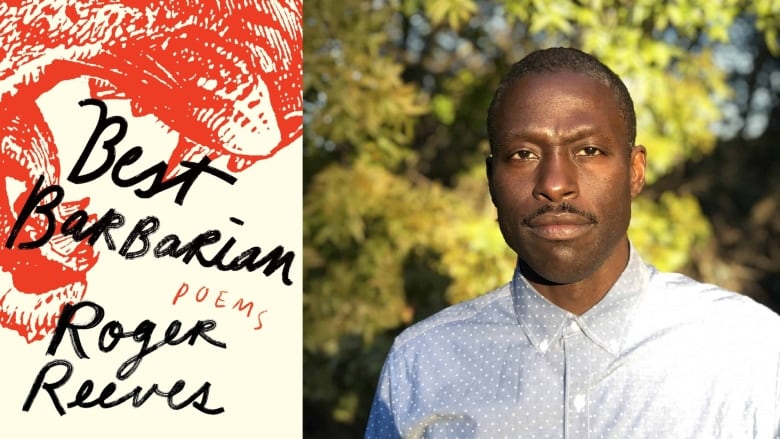
American poet Roger Reeves has won the 2023 Griffin Poetry Prize for his collection Best Barbarian.
The $130,000 prize currently stands as the world's largest international prize for a single book of poetry written in, or translated into English.
Best Barbarian is a collection that explores Black life in contemporary America. It was previously shortlisted for the U.S.'s National Book Award for Poetry and the PEN/Voelcker Award for Poetry Collection.
When Reeves was named the winner in front of a packed house in Toronto, his head fell to his hands and his mind went blank.
It took a beat for thoughts to return to Reeves after he heard his book's name called out, he said. But when they did, he thought of his people.
"This is for my people. For my people, and for my people over the centuries, people that have fought, that have bled, that have worked, and people that have danced, that have enjoyed," he said in an interview with the Canadian Press after the ceremony.
"I think the first thing that I would say is this is always for our people: for our people that had helped us get here."
Reeves is also the recipient of a Whiting Award and a National Endowment for the Arts fellowship. But to write, he said, he puts awards and accolades out of his head and thinks only of the work.
In his acceptance speech, Reeves thanked his grandmother, who moved from South Carolina to New Jersey to clean homes, including for some of the first Black women in the United States to get PhDs.
When she was cleaning those houses, he said, she'd tell her grandson to look up at the shelves.
"She would say, 'Look at those shelves. Just look at them,'" Reeves said in the speech. "There's no way that I could ever have imagined that looking at those bookshelves would bring me here, to this."
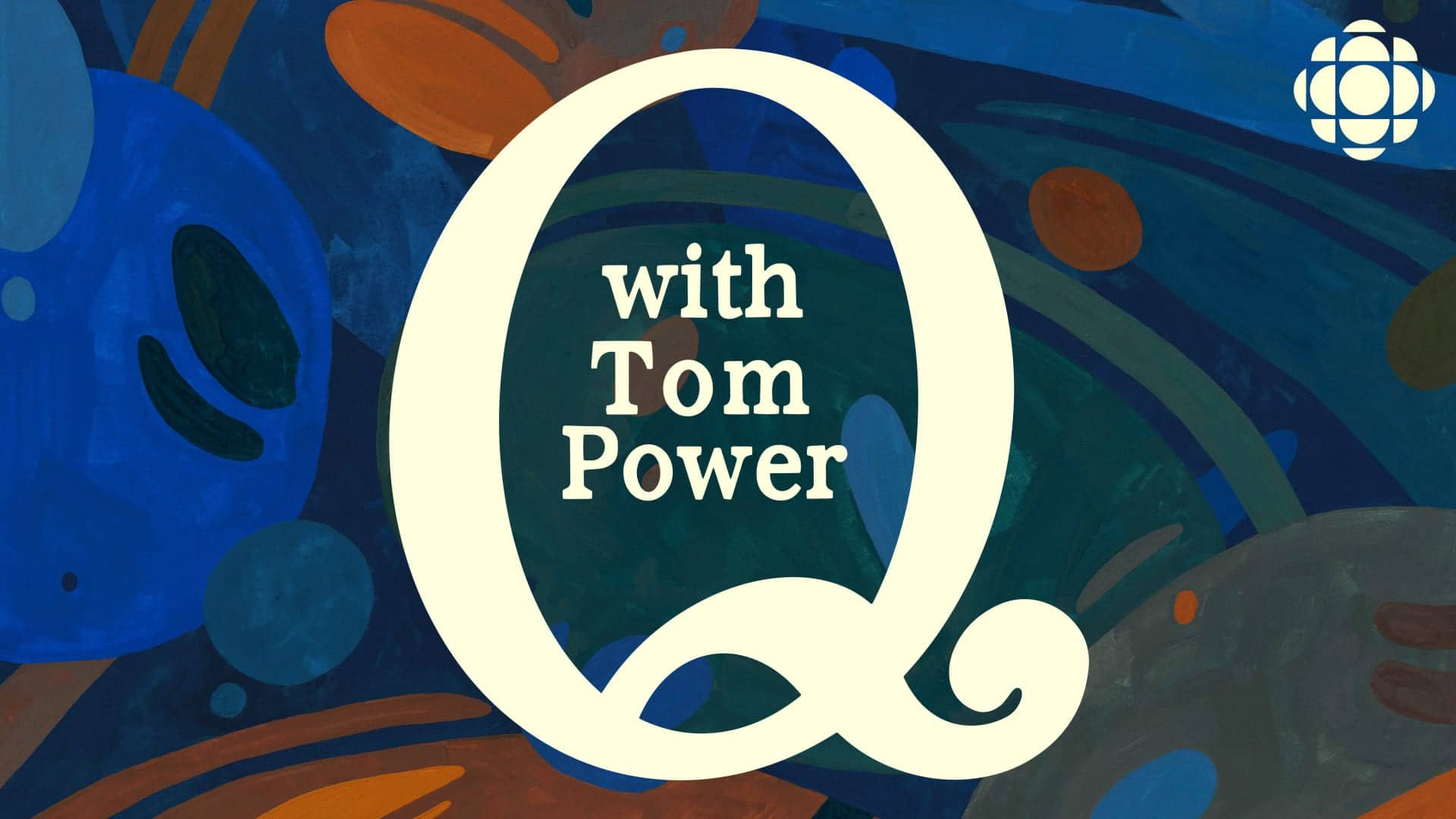
Reeves currently lives in Austin, Texas, with his wife and daughter. He frequently referenced his daughter during his readings, and credited her with the inspiration — and some actual lines of poetry — throughout the evening. He is also the author of the 2013 collection King Me.
Jurors praised Best Barbarian for charting "ruptures and violences enacted across time and space — particularly against Black humanity."
The jury was comprised of Canadian poet Gregory Scofield, American poet Natasha Trethewey and Macedonian poet Nikola Madzirov. They read 602 books, submitted by 229 publishers from 20 different countries.
The other finalists were Exculpatory Lilies by Canadian poet Susan Musgrave, The Threshold by Egyptian Canadian poet Iman Mersal, The Hurting Kind by current U.S. poet laureate Ada Limón and Time is a Mother by Vietnamese American poet Ocean Vuong.
The remaining shortlisted writers will each receive $10,000.
The Griffin Poetry Prize was founded in 2000 by Canadian entrepreneur and philanthropist Scott Griffin.
Since then, a combination of well-established and up-and-coming poets has won the award. The Canadian prize helped launch the careers of such rising stars as Billy-Ray Belcourt, Liz Howard and Tolu Oloruntoba, all of whom were recognized for their first collections.
Surrey, B.C.-based poet Tolu Oloruntoba was the Canadian winner of the 2022 Griffin Poetry Prize for his collection The Junta of Happenstance.
Other past Canadian winners include Canisia Lubrin, Anne Carson, Roo Borson, Dionne Brand, Billy-Ray Belcourt and Jordan Abel.
A big change for the Griffin Poetry Prize
2023 marked the first time the Griffin Poetry Prize gave out a single award. The prize previously awarded $65,000 to two works of English-language poetry from the previous year — one Canadian and one international.
The change for the prize program was designed to emphasize the international nature of poetry, the importance of translations and the fact that previous Canadian winners such as Ann Carson, Robert Bringhurst and Karen Solie are names that are recognized all over the world, said Scott Griffin, founder of the prize, in an interview with CBC Books, when the change was announced in 2022.
If you look at the other arts — be it music, painting or dance — Canadians can and should operate on the international stage. The same applies to poetry, he said.
"I suspect there will be some pushback on the fact that the prizes are being merged. This is actually a step forward — Canadians should be proud that they're competing now along with every other country."
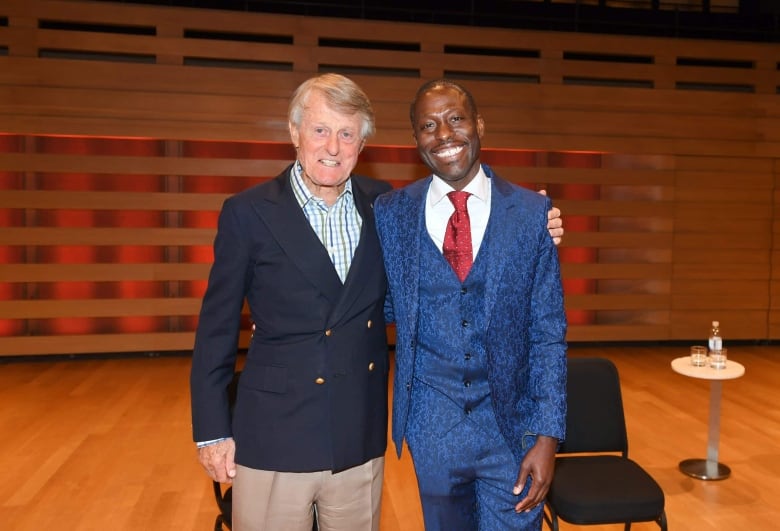
Griffin said Reeves' book was an incredibly sophisticated work of poetry, and his win shouldn't come as a surprise to observers.
"Canadians aren't going to win every year, but they're going to be on the same stage as the best in the world," Griffin told the Canadian Press. "That's something worth trying for and achieving."
When Griffin made the announcement last year, some observers were concerned it could hurt homegrown poets' chances to gain recognition.
Griffin dismissed those concerns, noting that he also added a $10,000 prize for a debut book of poetry for a Canadian writer.
Emily Riddle receives first-ever debut book award
This year also marks the first year for the first-ever Canadian First Book Prize. The $10,000 prize is awarded for a Canadian first book of poetry to a Canadian citizen, or permanent resident, for a first book written in English.
Nêhiyaw writer Emily Riddle won the Canadian First Book Prize for her debut poetry collection The Big Melt.
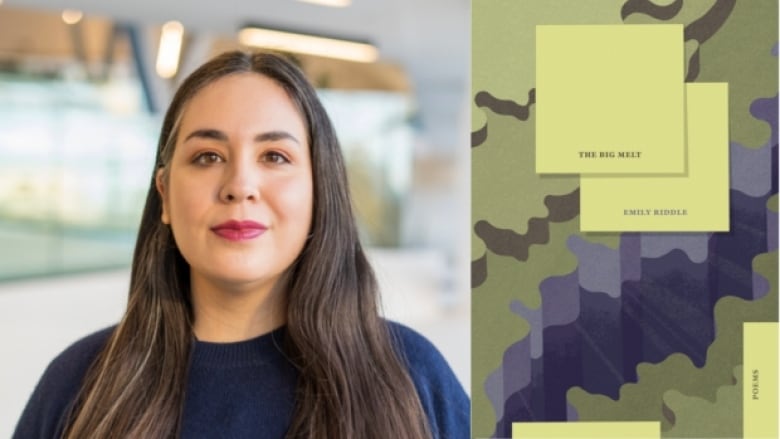
Riddle's The Big Melt is rooted in nêhiyaw thought and urban millennial life events. It examines what it means to repair kinship, contend with fraught history, go home and contemplate prairie and utopia in the era of late capitalism and climate change.
Part memoir, part research project, the collection draws on Riddle's experience working in Indigenous governance and her affection for confessional poetry in crafting feminist works that are firmly rooted in place. It is about inheriting a Treaty relationship just as much as it is about breakups, demonstrating that governance is just as much about our interpersonal relationships as it is law and policy.
"Emily Riddle's The Big Melt is nêhiyaw governance, Cree governance, at its single most personal form of self-autonomy. The governance of heart and history, language and landscape, nêhiyaw-askiy, Cree earth/land, is embedded in these warrior-women poems. If there is a trail back to our ancestors and forward to ourselves, these poems call us to be still, and to listen to a new generation of storytellers," the jury said of the winning book of poetry.

Riddle is is the senior advisor of Indigenous relations at the Edmonton Public Library and has been published in various publications such as The Washington Post, The Globe and Mail, Teen Vogue, The Malahat Review and Room Magazine. She received the 2021 Edmonton Artists' Trust Fund award and is a dedicated Treaty Six descendant who believes deeply in the brilliance of the Prairies and their people.
Riddle had previously made the 2020 CBC Poetry Prize shortlist for Learning to Count.
In addition to the $10,000, Riddle will also receive a six-week residency in Italy in partnership with the Civitella Ranieri Foundation.
Fanny Howe received lifetime achievement award
Buffalo, N.Y.-born author Fanny Howe was named the recipient of this year's Lifetime Recognition Award. She was shortlisted for the Griffin in 2001 for Selected Poems and again in 2005 for On the Ground and served on the prize's jury in 2015.
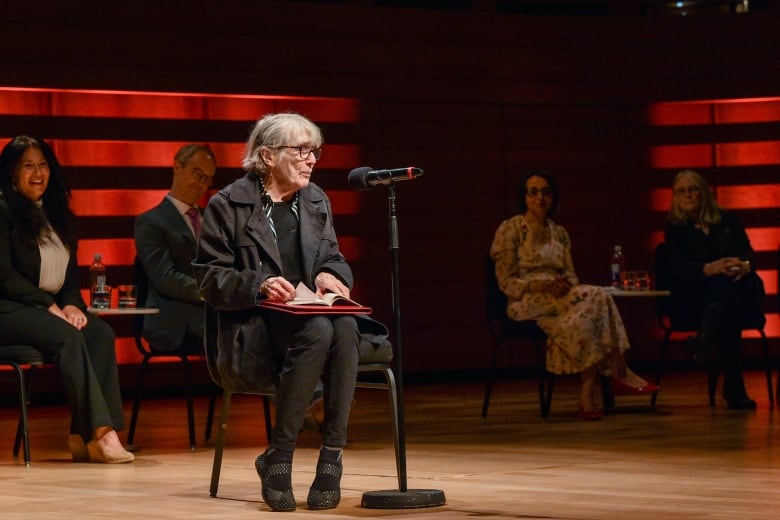
Over the course of her 50-year career, Howe has published more than 20 books of poetry, fiction and essays. Her best-known titles include the poetry collections One Crossed Out, Gone, and Second Childhood; the novels Nod, The Deep North, and Indivisible, and the essay collection The Wedding Dress: Meditations on Word and Life.
She lives in Boston, and has received numerous accolades over her career, including awards from the National Endowment for the Arts, the National Poetry Foundation, the California Council for the Arts, the American Academy and Institute of Arts and Letters and the Ruth Lilly Poetry Prize.
With files from the Canadian Press